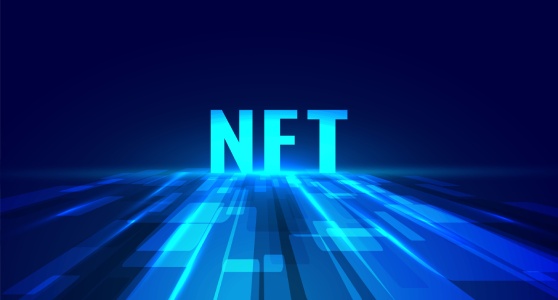-
The booming popularity of non-fungible tokens (NFTs) has introduced a new era of digital ownership and creative expression. The expansion of the NFT ecosystem across multiple blockchain networks and platforms presents a challenge for collectors and enthusiasts. Collectors may find it challenging to explore the abundance of decentralized marketplaces. Enter NFT aggregator platforms, the innovative solution that aims to unify the NFT market and provide users with a seamless experience. An NFT development company plays a crucial role in NFT aggregator platform development by providing accessible core digital assets to platform users.
This article aims to provide insights into NFT aggregator platforms.
Understanding NFT Aggregator Platform
NFT aggregator platforms curate NFTs from different sources, providing a unified interface for users. They simplify NFT discovery, making it easier for collectors and enthusiasts to explore and engage with the market.
These platforms offer convenience by saving users time and effort in searching through multiple marketplaces individually. They also enhance accessibility by supporting various blockchain networks and providing a centralized hub for NFT exploration and management. Additionally, NFT aggregator platforms often include portfolio management tools and community engagement features.
NFT aggregator platforms fulfill the need for a centralized solution, simplifying NFT discovery by curating diverse collections from multiple sources. They save time and enhance accessibility by providing a unified interface for accessing various marketplaces. These platforms improve the user experience and assist in portfolio management, making them essential tools in navigating the dynamic NFT market.
You May Also Like | Rental NFT | A New Era of Non-Fungible Tokens
NFT Aggregator Platform Features
The features of an NFT aggregator platform collectively enhance the user experience, streamline NFT exploration, and provide a comprehensive platform for users to discover, manage, and engage with the NFT market. The features of an NFT aggregator platform typically include:
Curated Collections
Aggregator platforms curate and showcase a diverse range of NFTs, offering users a carefully selected and organized selection of digital assets.
Multi-Platform Integration
These platforms integrate with various blockchain networks and marketplaces, allowing users to access NFTs from different ecosystems without the need to visit multiple platforms individually.
Advanced Search and Filtering
NFT aggregator platforms often provide robust search and filtering options, enabling users to refine their searches based on criteria such as artwork type, artist, price range, and more.
Portfolio Management
Users can manage and track their NFT collections within the aggregator platform, including features like portfolio valuation, transaction history, and alerts for upcoming events.
Social and Community Features
Many aggregator platforms include social features to foster community engagement. Users can interact, follow artists, join discussions, and share their collections with like-minded individuals.
Notifications and Alerts
Aggregator platforms notify users about upcoming NFT drops, auctions, and other important events to ensure they stay updated and have the opportunity to participate.
Analytics and Insights
Some platforms offer analytics and insights, providing users with data on market trends, pricing history, and the performance of specific NFTs. This information helps users make informed decisions.
Seamless Buying and Selling
Aggregator platforms often facilitate the buying and selling of NFTs directly within the platform, simplifying the transaction process for users.
User-Friendly Interface
These platforms prioritize intuitive and user-friendly interfaces, ensuring a smooth and enjoyable browsing experience for users.
Mobile Compatibility
Many aggregator platforms offer mobile apps or responsive designs, allowing users to access and explore NFTs on their smartphones and tablets.
Suggested Read | NFT Lending and Borrowing | When NFT Meets DeFi
Why Opt for NFT Aggregator Platform Development
NFT aggregator platform development brings convenience, improved user experiences, expanded choices, and community engagement, making them essential tools for collectors, artists, and enthusiasts in the evolving NFT landscape.
NFT aggregator platform development offers several notable benefits, including:
Centralized Access
By consolidating NFTs from various marketplaces and blockchain networks, aggregator platforms provide users with a centralized hub to access and explore a wide range of digital assets. This convenience saves users from the hassle of visiting multiple platforms individually.
Streamlined Discovery
Aggregator platforms simplify the process of discovering new and interesting NFTs. Users can easily browse through curated collections, popular releases, trending artists, and specific categories. It makes it easier to find unique and desirable digital assets.
Enhanced User Experience
These platforms often offer intuitive user interfaces, advanced search and filtering options, and personalized recommendations, all designed to enhance the user experience. By providing a seamless and user-friendly environment, aggregator platforms make NFT exploration and interaction more enjoyable.
Portfolio Management
Aggregator platforms often include features that allow users to manage and track their NFT collections in one place. Users can monitor their holdings, view ownership details, track the value of their assets, and receive notifications about important events, such as upcoming auctions or drops.
Community Engagement
Aggregator platforms foster community engagement by providing spaces for users to connect, share their collections, and interact with other NFT enthusiasts. These platforms often incorporate social features such as forums, chat rooms, and artist collaborations, creating a vibrant and supportive community.
Market Insights
Aggregator platforms can offer valuable market insights, including data on transaction history, price trends, and market dynamics. This information can assist users in making informed decisions when buying or selling NFTs and staying updated with the latest market trends.
Cross-chain Compatibility
NFT aggregator platforms support multiple blockchain networks, enabling users to access NFTs from different ecosystems. This cross-chain compatibility broadens the range of available digital assets. It increases accessibility for users who may have specific preferences or interests across various blockchain platforms.
Also, Visit | Cross-Chain NFT Marketplace: A Beginner's Guide
Conclusion
NFT aggregator platform development simplifies Web3 entry, offering entrepreneurs an opportunity to capture the market without managing an entire NFT marketplace.
With Oodles, we prioritize client needs, delivering high-quality platforms that unlock business potential. Embrace the Web3 realm now for timely innovation and market leadership. Contact our blockchain developers today.

Our Offices
INDIA
Emaar Digital Greens, Sector 61,
Gurugram, Haryana
122011.
Welldone Tech Park,
Sector 48, Sohna road,
Gurugram, Haryana
122018.















